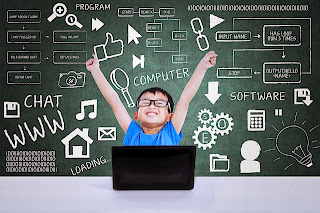When we hear about the phrase ‘early learning for children or toddler’, do we think of educational institution called "Preschool"? The importance of preschool is progressively wide acknowledged everywhere in the world. nevertheless by the time most children begin preschool, aged around three, the foremost vital building blocks for learning have already been in place. That’s why in this posting, Edutoddlers team would share about early childhood education that focuses on learning from birth to three years old.
In the early three years of life, children’s brains square measure a way more active than those of university students. even as their bodies want breast milk, their brains want tenderness, stimulation, and meaning interaction – language, touch, eye contact, exploration, play. The more they get this stuff, the more successfuly they're going to learn to decipher and classify objects, establishing language patterns and build themselves understood, and develop relationships that supported trust. These square measure the forms of cognitive, social and emotional skills that underpin the passage through shcool institution and productive life.
While findings from neuroscience and economics together make a powerful case for societies investing more in children’s first three years, a big challenge still reside ahead to persuade policymakers to see this life stage as a strategic priority. Data are scarce – many countries collect statistics about survival and health indicators for the under-3s, but we know much less about the extent to which their parents, communities and environments give them opportunities for exploring, playing and learning. We need more scientific evidence about what policies and interventions work.
And we need more case studies that will help political leaders to understand how best to approach the need for intersectoral coordination, given that multiple ministries – health, education, women, labour – typically need to work together if the early learning needs of 0–3 year olds are to be effectively met.
There are signs of encouragement. President Obama’s recent call for universal preschool in the United States was heard around the world, and helps early childhood advocates to gain the ear of political decision makers.
Further south in the Americas, Dilma Rousseff in Brazil and Ollanta Humala in Peru are among the new wave of Latin American presidents who have not only spoken frequently and passionately about the need to invest in young children, but have also committed resources and begun to roll out national programmes. Cuba, Sweden, Chile and Colombia are other examples of countries which have scaled-up programmes targeting very young children.
Source :
Leonardo Yánez, Programme Of f icer, Bernard van Leer Foundat ion
you can download the complete article here







